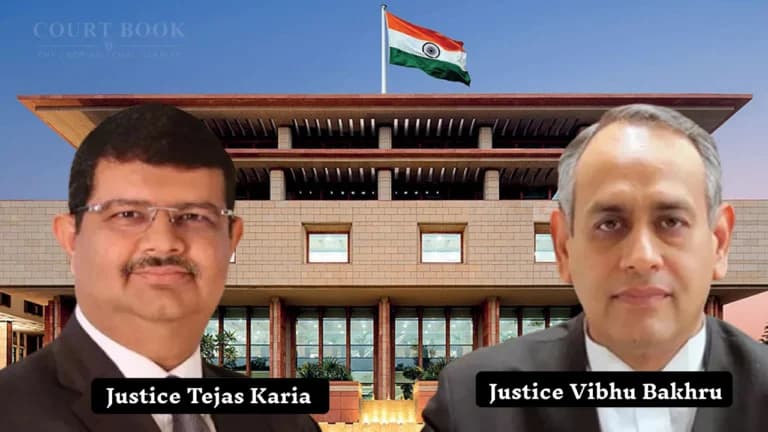The Delhi High Court, in a significant ruling, emphasized that if a contract clause is plain and unambiguous, referring to outside materials like negotiations or correspondence to interpret it is legally impermissible. The Division Bench of Justice Vibhu Bakhru and Justice Tejas Karia held:
“Ignoring an explicit clause of the contract or acting contrary to the terms of the contract amounts to patent illegality.”
This observation came in the case between Oil and Natural Gas Corporation Ltd. (ONGC) and JSIW Infrastructure Pvt. Ltd., where disputes arose over Clause 3.4.1.5 of the General Conditions of Contract (GCC) concerning the reimbursement of duties.
Read also:- Kerala High Court Bars Government from Converting Private Petrol Pump Toilets into Public Toilets
The issue began with ONGC awarding contracts for a pipeline replacement project to JSIW. JSIW initially intended to import line pipes and hence requested an amendment for reimbursement of Countervailing Duty (CVD). ONGC agreed, but only for imported pipes. However, JSIW later procured pipes domestically and sought reimbursement of excise duty, leading to a disagreement.
Though Clause 3.4.1.5 was amended to reflect CVD reimbursement for imports, JSIW argued that it applied even when pipes were procured locally. ONGC denied this, stating the clause only allowed CVD reimbursement, not excise duty for domestic purchases.
Read Also:- Delhi High Court: MACT Must Deduct Income Tax and Other Allowable Deductions While Calculating Compensation
A three-member arbitral tribunal initially ruled in JSIW’s favor, but both parties agreed to set aside that award and appointed a Sole Arbitrator, who rejected JSIW’s claim. Challenging this, JSIW approached the court under Section 34 of the Arbitration and Conciliation Act, 1996. The Single Judge allowed the petitions and set aside the Sole Arbitrator's award.
The Single Judge held that Clause 1.2.5 of the GCC clearly stated the contract terms overruled all previous negotiations or correspondence. The Arbitrator, by relying on such materials, committed an error. The Judge concluded:
“The GCC would prevail over the Bidding Documents in case of conflict, and the language of Clause 3.4.1.5 is clear.”
ONGC challenged this under Section 37. Their counsel argued that the court went beyond its limits and that the arbitrator’s decision should be respected. However, the Respondent contended that courts must interfere when the award rewrites contract terms.
The High Court clarified the scope of Section 37, reiterating it is limited to checking whether the Section 34 court acted within its jurisdiction. It emphasized that where contract language is plain, arbitrators must not rely on extraneous evidence.
Quoting the Supreme Court’s decision in State of Chhattisgarh v. Sal Udyog, the Court reiterated:
“Failure of the arbitrator to decide in line with contract terms invites the ground of patent illegality under Section 28(3).”
Read Also:- Favouritism Exposed: High Court Quashes JKMSCL Contracts Over Rule Violations
The Court also added:
“When there is only one view possible, the Court can set aside the Award if the arbitrator’s view is not even a plausible one.”
The Court found the interpretation by the Arbitrator to be erroneous and against the spirit of the contract. It upheld the Single Judge’s order and dismissed ONGC’s appeals.
Case Title: Oil and Natural Gas Corporation Ltd. v. JSIW Infrastructure Pvt. Ltd.
Case Number: FAO (OS) (COMM) 59/2024 & 60/2024
For Appellant: Mr. Saurav Agrawal and team
For Respondent: Mr. Aayush Agarwala and team















